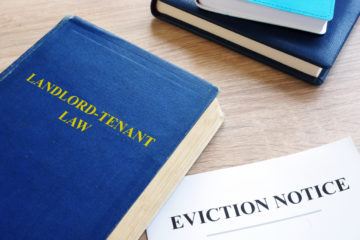Home sellers warned not to miss out on stamp duty holiday deadline
NAEA Propertymark recommends sellers market their properties before 26th September to meet the stamp duty holiday deadline of 31st March.
Mark Hayward, Chief Executive, NAEA Propertymark comments: “With housing market activity excelling following the Chancellor’s announcement of a stamp duty holiday, we expect the market to remain busy into the new year.
“Following all social distancing measures and making sure everything is in order will help maximise your chances of completing ahead of 31st March.”
NAEA Propertymark provides the following tips for selling your home:
1. Show you are serious from the get-go
Show house hunters that you’re serious about the sale by reading up on and adhering strictly to all social distancing measures. Rearrange any cluttered furniture to prevent viewers from needing to touch too much and ensure social distancing measures are followed in line with Government and Propertymark advice. This includes vacating your property whilst viewings are taking place in order to minimise your contact with those not in your household.
2. Photos and virtual viewings
When buyers are looking at properties online or within an agency, they make their minds up in seconds. That’s why having the very best photography of your home is vital. The right photos, especially with house hunters currently more apprehensive to book in a physical viewing, could mean higher offers and a quicker sale. Most agents routinely use professional photographers or appreciate the value in investing in the latest technology, so it’s a good idea to have great photos which truly reflect the property to reduce unnecessary visits from buyers who aren’t serious.
3. Realistic asking price
The temptation to overprice as you know buyers will be saving on stamp duty is bound to backfire and lose you valuable time on the market. The majority of house viewings happen in the first 20 to 30 days of the listing, with virtual viewings currently taking place even sooner. If you then decide to reduce your initial asking price, the number of views will drop after the initial buzz, so don’t risk your house being stigmatised by an unrealistic asking price from the start.
4. Choosing an estate agent
When it comes to choosing an agent to sell your home, it helps to make a shortlist of possible agents. Once you have a shortlist of three or four possible agents, give them a call and ask them to provide a valuation for your property. This is a chance for you to check their communication skills, professionalism and knowledge. Don’t be afraid to ask questions, and make sure to gather as much information as possible – you’re going to need it when it comes to making a decision about who you want to sell your home.
NAEA Propertymark state that their agents follow best practice, meet all requirements of the profession and work to industry standards. Their estate agents hold Professional Indemnity Insurance and if they are holding monies are required to be covered by Client Money Protection to give you peace of mind throughout the sale of your property.
5. Paperwork
Ask your estate agent about the Propertymark Sales Protocol Toolkit, which will save you money, reduce the length of time you wait to move, minimise the risk of the sale falling through and remove many of the problems that so often occur in a property sale. This contains a Property Information Questionnaire that needs to be completed before your house is ‘sale ready’. Alongside this, you will also need copies of all relevant paperwork, including:
- A copy of the lease (if the property is leasehold)
- Documentation related to the freehold (if it’s a freehold property)
- FENSA certificates for replacement windows
- Your Energy Performance Certificate (EPC)
- Relevant building restrictions
- Building regulation certificate when alterations have taken place
- A Gas Safety certificate for a new boiler





